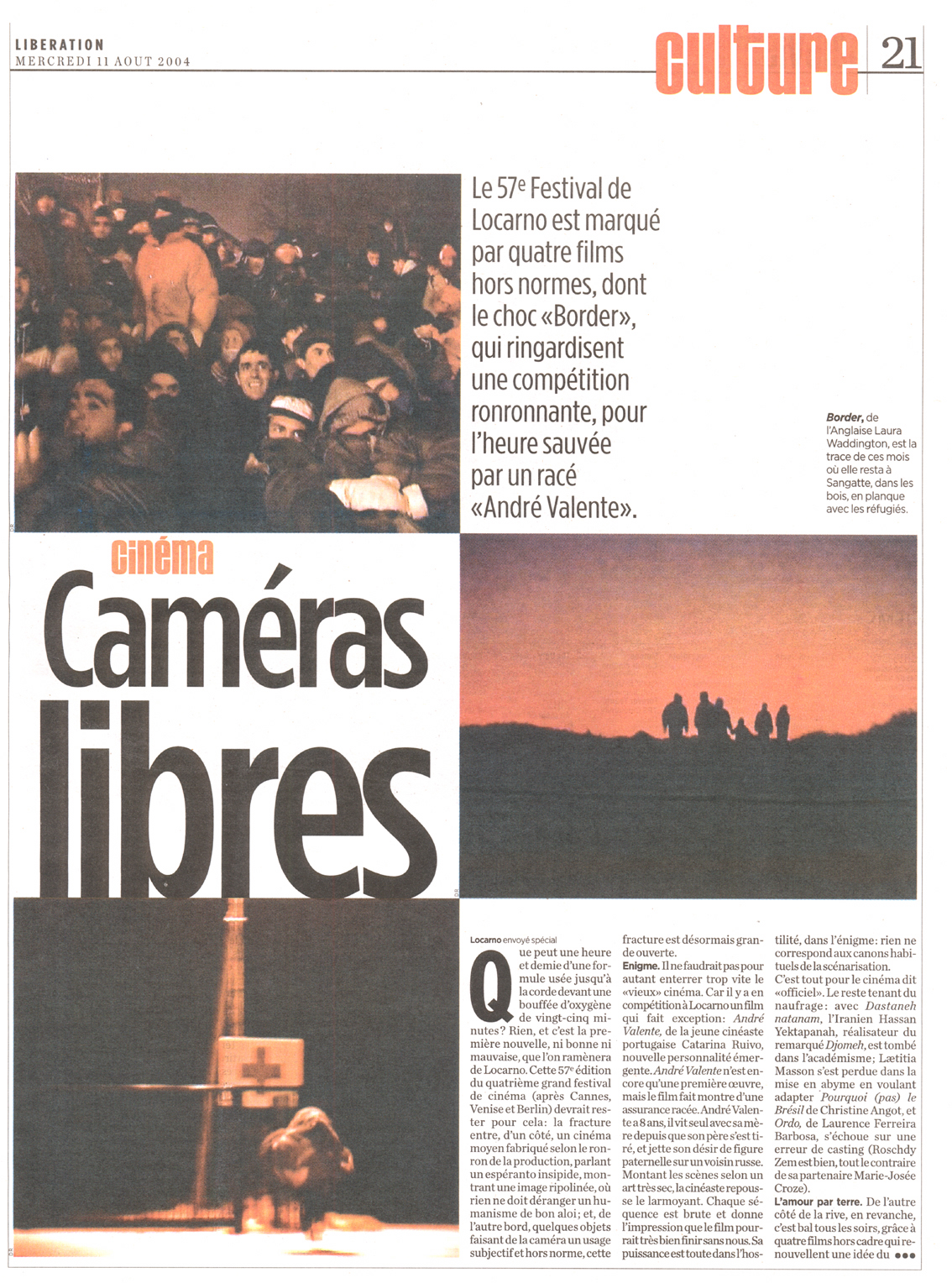Free Cameras
By Philippe Azoury
Translated from the French
The 57th Locarno Film Festival is marked by four exceptional films, including the shock Border which render out of date a sluggish competition, for the moment saved by the lively Andre Valente.
What can an hour and a half of a worn-out formula do in the face of a burst of oxygen lasting twenty five minutes? Nothing. And that’s the first piece of news, neither good nor bad, that we bring back from Locarno. This 57th edition of the world’s fourth largest film festival (after Cannes, Venice and Berlin) will be remembered for this: the rift between, on the one hand, a mediocre cinema created by the humdrum of routine production, speaking an insipid Esperanto, presenting a polished image, where nothing must disturb a polite humanism; and on the other hand, a few works that use the camera in a subjective and extraordinary way. From now on, this fracture is wide open.
(…)
Bus, stop, cargo. But the shock of the festival is the cinema of Laura Waddington. Thirty-four years old, English, she lived illegally in New York, then spent a few years travelling with the world’s exiles in the most dangerous places. Due to a plane phobia, she made these journeys on buses, cargo ship and by hitchhiking. But aside from planes, Laura Waddington is afraid of nothing and her video camera carries all her courage and her conscience. Slung across her shoulder. Border (compétition vidéo) is the trace of the months, she spent in Sangatte, hidden in the fields, each night, with Afghan and Iraqi refugees. Shot secretly, the shutter wide open, almost in slow motion, the images create an aesthetic experience of fear and of pursuit, as if emerging from a nightmare populated with blurred figures. Border links the fields of Sangatte to that terrified part of our imagination, hidden deep within each of us.
Bus, stop, cargo. But the shock of the festival is the cinema of Laura Waddington. Thirty-four years old, English, she lived illegally in New York, then spent a few years travelling with the world’s exiles in the most dangerous places. Due to a plane phobia, she made these journeys on buses, cargo ships, hitchhiking. But aside from planes, Laura Waddington is afraid of nothing and her video camera carries all her courage and her conscience, slung across her shoulder. Border (Compétition vidéo) is the trace of the months that she spent in Sangatte, hidden in the fields, each night, with Afghan and Iraqi refugees. Shot secretly, the shutter wide open, almost in slow motion, the images create an aesthetic experience of fear and of pursuit, as if emerging from a nightmare peopled with blurred figures. Border links the fields of Sangatte to that terrified part of our imagination, that lurks deep within within each one of us.
Four films, eighty minutes of screening time, at the end of which we no longer know what cinema is, at least where the frontier lies between cinema and the rest. We know just one more thing about what art is: an ultra-sensitive propensity to resonate with the bankruptcy of the world.

Source
Azoury, Philippe. “Caméras libres.” Libération, Paris, August 11, 2004: pp. 21–22.
(An English translation “Free Cameras” is also available on Laura Waddington’s website.)
Back to top